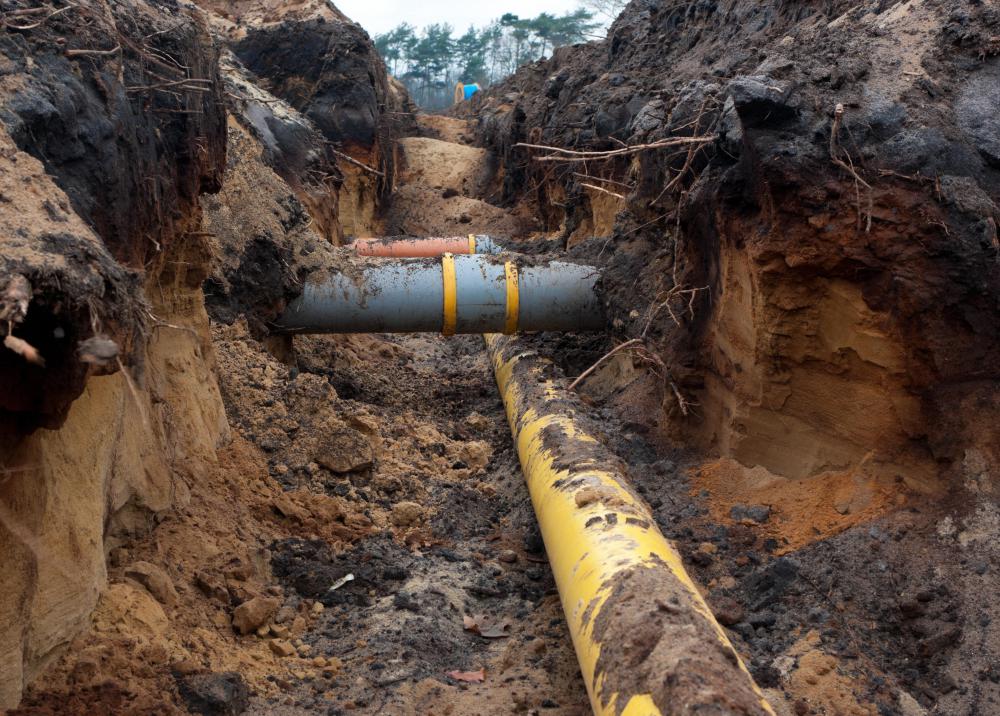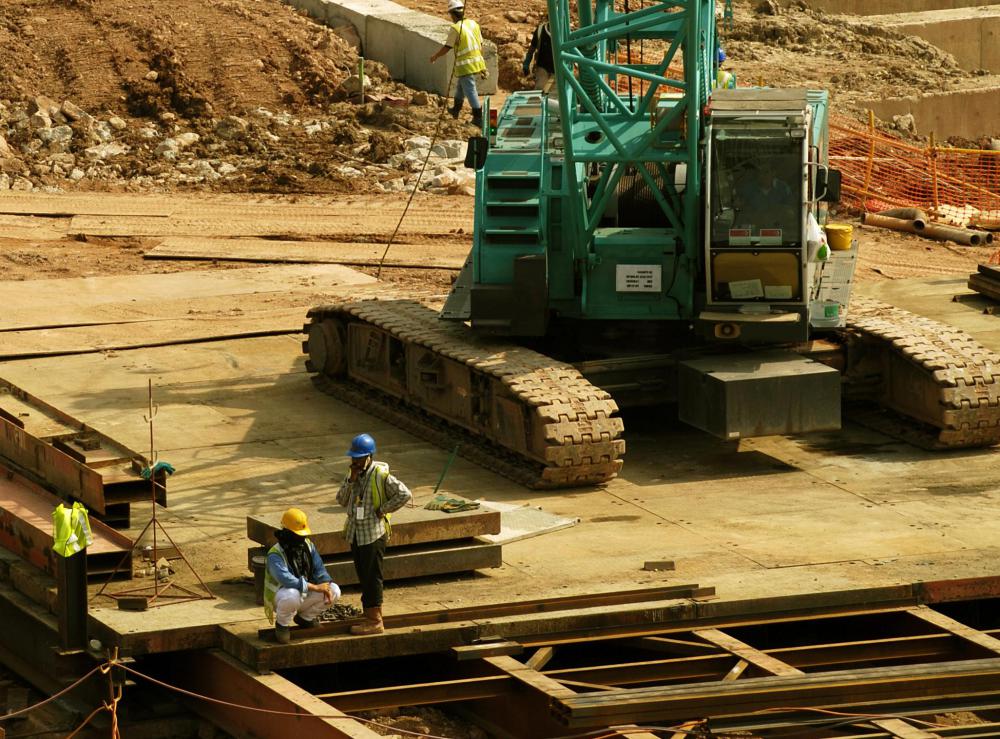At PracticalAdultInsights, we're committed to delivering accurate, trustworthy information. Our expert-authored content is rigorously fact-checked and sourced from credible authorities. Discover how we uphold the highest standards in providing you with reliable knowledge.
What Is Involved in Civil Engineer Training?
Civil engineer training revolves around the design and construction of numerous structures and systems. A civil engineer is trained in structural design, sewage treatment, waste and pollution prevention as well as a variety of construction techniques. The foundation of civil engineer training begins with a bachelor's degree in civil engineering. For an engineer who has a formal education in another engineering specialty, there are numerous classes and courses available that focus strictly on the principles of civil engineering and bypass the fundamentals of engineering in general.
The purpose of a civil engineer is to assist in the creation of building and structures that take into account the surrounding environment. The basic job function of a civil engineer is to ensure that a structure is soundly built and safe. It is because of this important responsibility that civil engineer training is often rooted in structural design. Civil engineers must be able to analyze the design fundamentals of structures as well as the materials being used in construction to ensure that the structures can operate safely given their use and their surrounding environment. Anticipation for potential environmental risks such as hurricanes, tornadoes and earthquakes is also a critical component of civil engineer training, because buildings and structures often must be designed to withstand the elements.

Sewage treatment is another component of civil engineer training. As populations continue to grow around the world, civil engineers have the responsibility of designing systems that ensure the quality of the groundwater used for consumption as well as the healthy disposal of waste and sewage. Depending on the use of a structure, the design of an efficient waste management system is critical, because poor waste systems can be the cause for sickness, disease and even death.

Civil engineer training also prepares engineers in the area of hazardous material management and pollution prevention. Many civil engineers are employed by large manufacturing corporations, partly because of the environmental regulations that are imposed by governmental agencies. These companies must ensure that they are operating in accordance with the environmental laws of their area, and it is the responsibility of the civil engineers to create systems that safely dispose of hazardous materials and limit the pollution that is transmitted into the environment.

There are numerous certifications that can be obtained by civil engineers in various specialties. Civil engineer training programs prepare candidates for a number of certifications. These certifications often revolve around water resource infrastructure, waste water treatment facilities and geotechnical engineering.
AS FEATURED ON:
AS FEATURED ON:













Discuss this Article
Post your comments